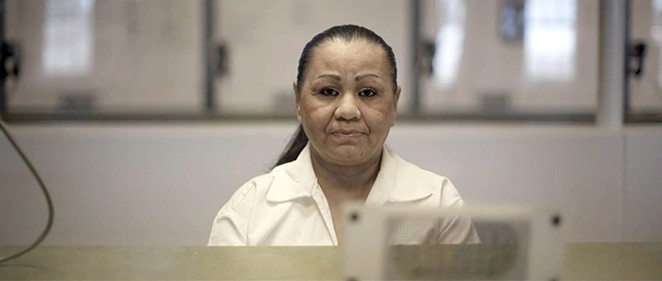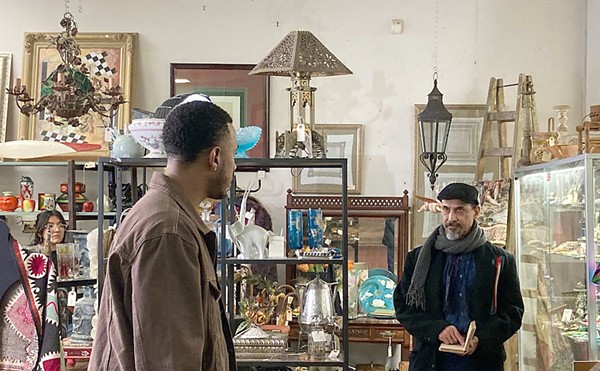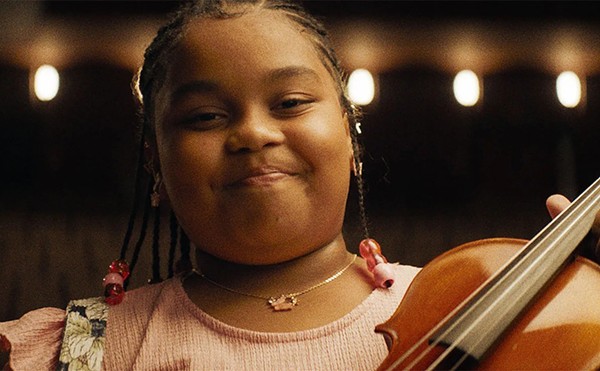
Then, Van Tassel met Lucio and her family. Her opinion immediately changed.
“I was the very first journalist they had ever met in their life,” Van Tassel said about her new documentary The State of Texas vs. Melissa. “No one wanted to hear [Melissa’s] side of the story. Right away, I knew there was really something wrong with this story.”
What Van Tassel began to unravel was a complex narrative that many believe involves an unfair trial, a forced confession, incompetent lawyers, incomplete witness testimony and a district attorney who was later sentenced to 13 years in prison for bribery, extortion and racketeering.
Last year, the U.S. Court of Appeals for the Fifth Circuit overturned Lucio’s conviction. The state appealed the decision and the hearing was delayed by the pandemic. For now, Lucio waits behind bars. Will her overturned conviction be upheld, or will she have to make a final appeal to the U.S. Supreme Court and hope it hears the case?
The State of Texas vs. Melissa is currently streaming on VOD platforms.
What ultimately drew you to Melissa’s story?
My instincts told me that [Melissa] wasn’t the kind of person who could [kill her child]. I called her lawyer and she said she knew Melissa was innocent, but there was nothing they could do. She said I was too late and that [Melissa] was going to be executed within nine months to a year. So, I asked her to send me all the paperwork on her trials, and I started reading. I made calls to people and they would be like, “Oh, why are you interested in Melissa Lucio? Why her?” Melissa Lucio [represents] everything society despises — she’s a woman, Hispanic, poor, she has 14 children. Her life was worth nothing to them. It was like, “Ugh, let her rot in Hell.” That’s the reason I decided to tell her story.
Do you hope this film can help Melissa’s case moving forward?
Definitely. So far, every single news article has helped her. From the very beginning of this project, I was like, “This woman is innocent. What am I going to do? Go back to my life and forget about her?” What you see in the film are facts that have been presented at court and during her appeals. That’s enough evidence for her to get a new trial. Even if she had done what she’s accused of, she shouldn’t be on death row.
How would you describe Melissa when you interviewed her in prison?
She was very calm. Melissa is a very nice person. She is loved by other inmates and by the guards. She doesn’t get into fights. She is the best kind of inmate. She’s very lenient and truthful. The very first time I met Melissa, she told me that she doesn’t deserve to be on death row but she deserves to be where she is because she didn’t protect her daughter like she should have.
What is the current family dynamic between Melissa’s children since one of them, Alexandra, is accused in the film of being the actual perpetrator of the abuse of Mariah?
It’s kind of a mess. All the older siblings stick to the story that Alexandra had some issues with Mariah. Of course, Alexandra doesn’t see the same thing. There are one or two siblings who grew up with Alexandra who have her back. I interviewed most of [Melissa’s children] and none of them ever said, “We saw our mom [hit Mariah].” All the older kids are still very close to Melissa. They write to her and strongly believe she is innocent. They also believe they are third-class citizens who will not get justice because nobody is interested in their family.
Are you worried about Melissa’s case because of what is currently happening with the U.S. Supreme Court?
We are very worried because Donald Trump has appointed right-wing judges who are in favor of the death penalty and who tend to not want to deal with these cases. And in Texas, they execute. It’s not like in other states where you have years before the execution goes through. In Texas, it can go quite fast. That’s why I want to make a lot of noise about her story. Melissa wouldn’t be on death row if she wasn’t poor or Hispanic. There is already something wrong with the U.S. justice system. It is unjust and unfair. But if we execute Melissa Lucio, there is really something wrong with the U.S. justice system.
Stay on top of San Antonio news and views. Sign up for our Weekly Headlines Newsletter.













